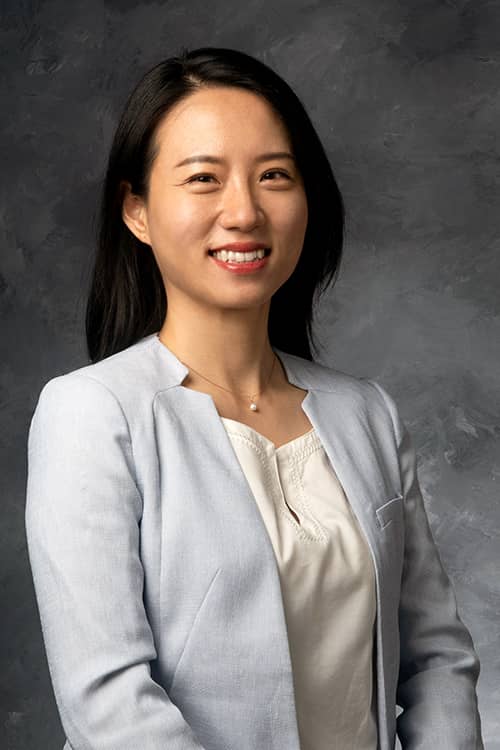
Hae Sun Kim, Ph.D. student, Music Therapy
Enhances music therapy education
“Hae Sun has been reviewing the use of online simulation-based learning in healthcare education, with the aim of adapting simulation-based learning tools into music therapy education… Her dissertation is significant in the field because online simulation-based learning can help educate music therapy clinicians about how to improve accessibility of music experiences for older adults with hearing loss.” – Abbey Dvorak, Assistant Professor of Music Therapy
• Hometown: Seoul, South Korea
• Faculty mentor/advisor: Professor Abbey Dvorak
• What is your degree program and expected graduate date? I am a PhD candidate in music education with music therapy emphasis with an expected graduation date in Summer 2022.
• Please describe your research: My research is designed to develop and test online simulation-based learning modules for music therapy students, with the content focusing on music and hearing loss.
• In simple terms, why does this research matter? My research matters because the learning modules can support optimal clinical development of music therapists who work with older adults with hearing loss. In the United States, hearing loss is the third most prevalent chronic physical condition among older adults. As the large baby boomer generation ages, the opportunities for music therapists to work with this population will also expand. However, there are currently limited resources and in-depth instruction regarding music and hearing loss in the field of music therapy. Thus, I am interested in examining best practices in other healthcare professions and developing online simulation-based modules for music therapists, with the content focusing on music and hearing loss. These online instructional modules will be flexible, accessible, and affordable resources for music therapists who seek to deepen and broaden their knowledge and skills related to hearing loss.
• How soon after starting at the University of Iowa were you able to participate in research? During my first semester, I began to get involved in research as a graduate research assistant in the Music Perception Laboratory in Otolaryngology—Head and Neck Surgery at UIHC.
• How has being involved in research made you more successful at the University of Iowa? During my graduate studies, the collaborative research effort in Dr. Gfeller’s lab between individuals with hearing devices, music therapists, audiologists, speech-language pathologists, and otolaryngologists has been key to my development as a graduate student and researcher. This collaboration has enabled me to expand my knowledge about hearing loss and understand the needs of those with hearing loss as well as the roles of these speech and hearing professionals. In addition, this research enabled me to develop my communication skills with fellow researchers.
• What are your career goals and/or plans after graduation? After graduation, I would like to continue and expand my research while teaching and working in academia.
• Does your research have connections to or implications for COVID-19? Please explain. Yes! Due to the challenges of COVID-19 pandemic, there is the distinctive rise of e-learning as a tool for continuing professional development and expanding knowledge beyond the traditional, in-person classes. My research promises to be timely instructional resources for music therapists who work with diverse client populations including those with hearing loss.
Banner location: Downtown—Washington Street
